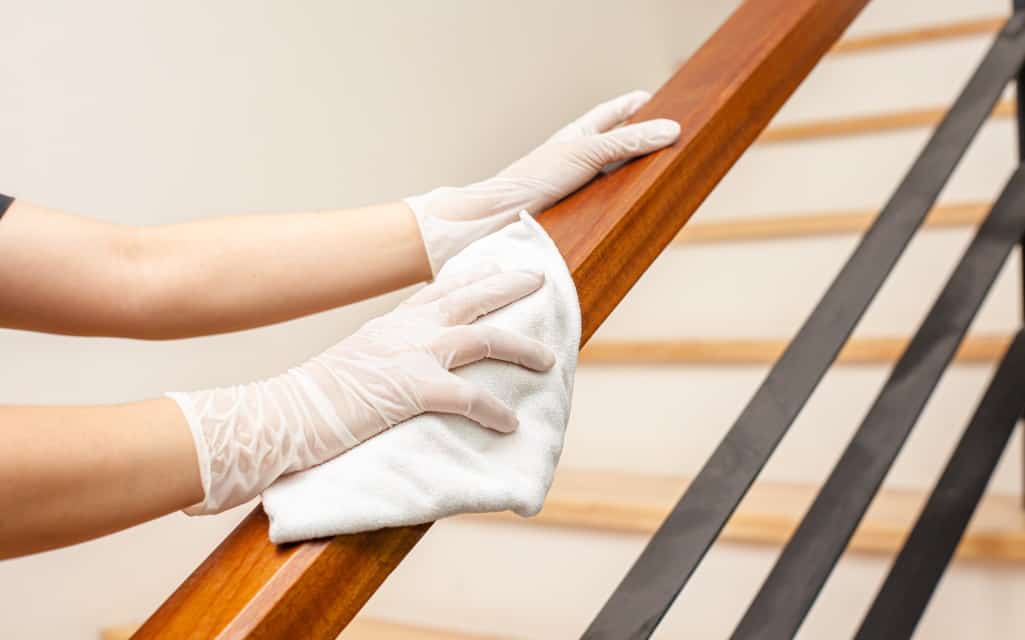With many people now spending most of their time at home, it has become important to try to keep up with good hygiene habits. It’s the safest way for you to remain healthy, more so for households that have people who are self-isolating.
What Should You Clean?
You need to focus on all the high traffic areas in the household. These are the areas that make it possible for pathogens to easily spread around the residence. Apart from your hands, you should also concentrate on frequently touched areas like:
• Bathroom surfaces and food prep areas
• Light switches and door handles
• Tap and toilet handles
• Appliance dials and handles, e.g., oven and microwave dials, fridge doors, and kettle handles
• Shared computer accessories such as mouse and keyboards
• TV remotes
It’s also imperative to think about all the items that can spread germs, e.g., cleaning cloths and sponges. According to Professor Sally Bloomfield of the London School of Hygiene and Tropical Medicine, the purpose of using a disinfection service is to try to prevent the individual-to-individual spread of COVID-19 as opposed to merely cleaning the house.
Preventing its spread calls for correct hand hygiene (covering the nose and mouth when you cough or sneeze and washing your hands), good respiratory habits, and proper hygiene of all the contact surfaces.
Which Cleaning Products Can Work Against COVID-19?
When it comes to cleaning your hands, water and good old soap have been seen to be some of the most effective options as far as surface cleaning is concerned.
Dr. Primrose Freestone, an Associate Professor at the University of Leicester dealing with Clinical Microbiology explains that:
“Coronavirus is an enveloped ribonucleic acid (RNA) virus which means that lipids and proteins form part of its structure. As such, detergents such as washing-up liquid and soap are quite efficient when it comes to disrupting its structure. They can do so by dissolving the lipids which assist in deactivating the COVID-19 virus, thereby making it impossible for it to bind to the human cells.”
Hand sanitizers contain alcohol which works in the same manner, as they can dissolve the lipids that are present in the virus coating. Hospital grade disinfectant wipes should be able to do this as they have more than 60% alcohol content.
Read More: 5 Best Family Games to Play During Coronavirus Lockdown
Cleaning Surfaces to Assist in Preventing Infection
Existing evidence suggests that the novel coronavirus (COVID-19) can survive on surfaces for a few hours or even days. Research is currently ongoing to try to determine just how long it can survive.
Past studies have established that related coronaviruses like MERS and SERS can persist on a hard surface such as plastic, glass, or metal for several days. It’s, however, possible to kill them within sixty seconds if properly cleaned and disinfected.
According to Excel Pest Services, all hard surfaces should first be cleaned using warm, soapy water. This will assist in disinfecting each hard surface.
Which Disinfectant Products Should You Use?
Diluted household bleach solutions (sodium hypochlorite or hydrogen peroxide alcohol solutions) with an alcohol content of at least 70 percent can be used for disinfection purposes. Antiviral household disinfectant solutions with a similar alcohol percentage can also work.
Dr. Freestone notes that homeowners don’t have to spend additional money acquiring specialized disinfectant products as regular diluted bleach and detergent are fine. They will both prove effective in the fight against COVID-19.
Before you purchase a disinfectant, make sure to first go through the product details. You have to confirm that the solution does assist in combating viruses including human coronaviruses and influenza. A good surface cleaner to consider using when cleaning at home is the Dettol surface cleaner.



